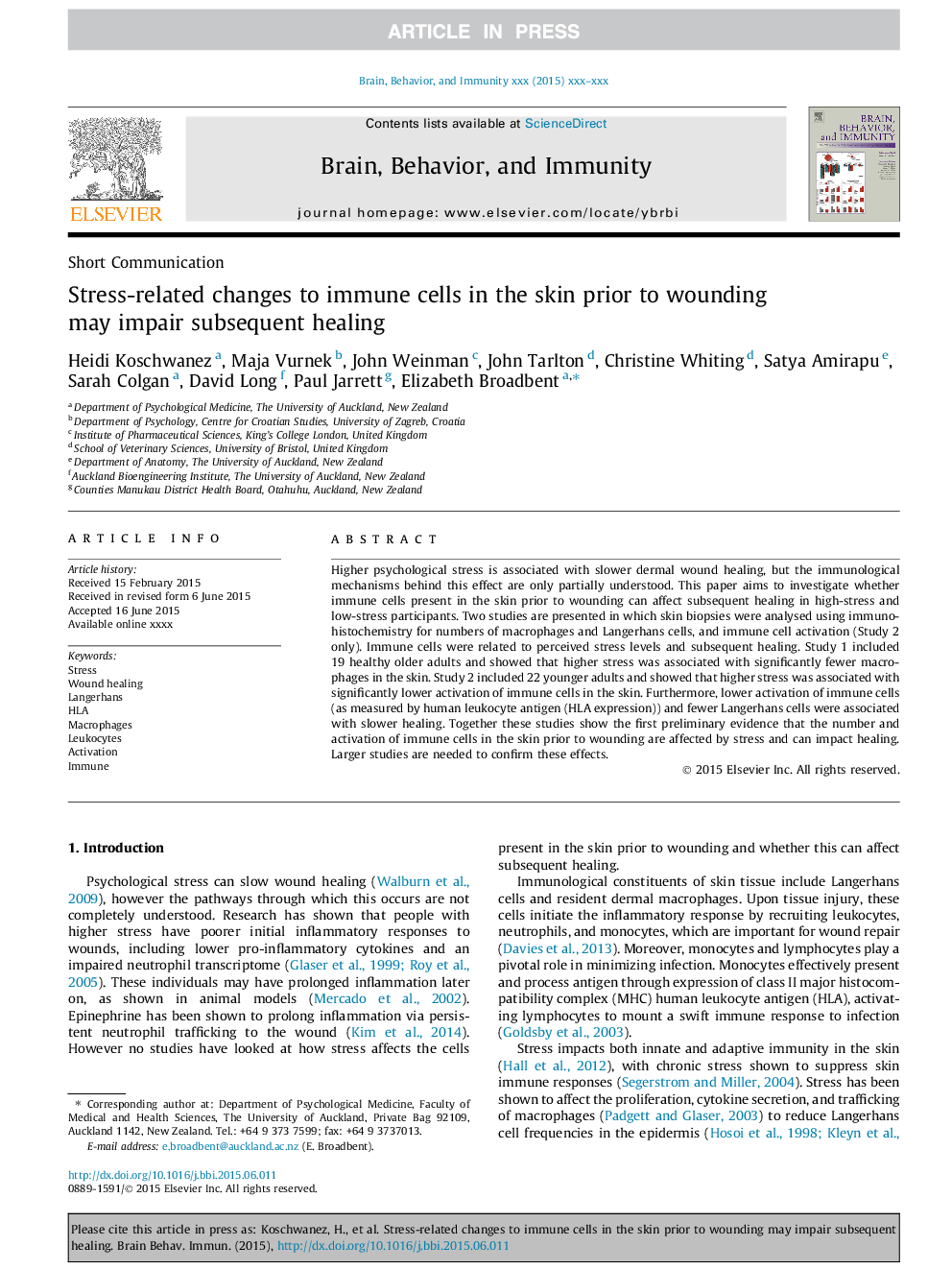| Article ID | Journal | Published Year | Pages | File Type |
|---|---|---|---|---|
| 7280617 | Brain, Behavior, and Immunity | 2015 | 5 Pages |
Abstract
Higher psychological stress is associated with slower dermal wound healing, but the immunological mechanisms behind this effect are only partially understood. This paper aims to investigate whether immune cells present in the skin prior to wounding can affect subsequent healing in high-stress and low-stress participants. Two studies are presented in which skin biopsies were analysed using immunohistochemistry for numbers of macrophages and Langerhans cells, and immune cell activation (Study 2 only). Immune cells were related to perceived stress levels and subsequent healing. Study 1 included 19 healthy older adults and showed that higher stress was associated with significantly fewer macrophages in the skin. Study 2 included 22 younger adults and showed that higher stress was associated with significantly lower activation of immune cells in the skin. Furthermore, lower activation of immune cells (as measured by human leukocyte antigen (HLA expression)) and fewer Langerhans cells were associated with slower healing. Together these studies show the first preliminary evidence that the number and activation of immune cells in the skin prior to wounding are affected by stress and can impact healing. Larger studies are needed to confirm these effects.
Related Topics
Life Sciences
Immunology and Microbiology
Immunology
Authors
Heidi Koschwanez, Maja Vurnek, John Weinman, John Tarlton, Christine Whiting, Satya Amirapu, Sarah Colgan, David Long, Paul Jarrett, Elizabeth Broadbent,
